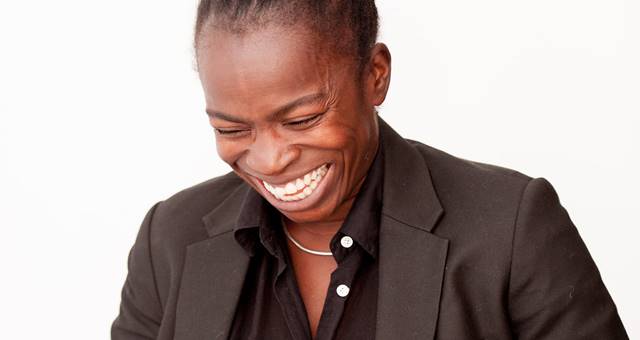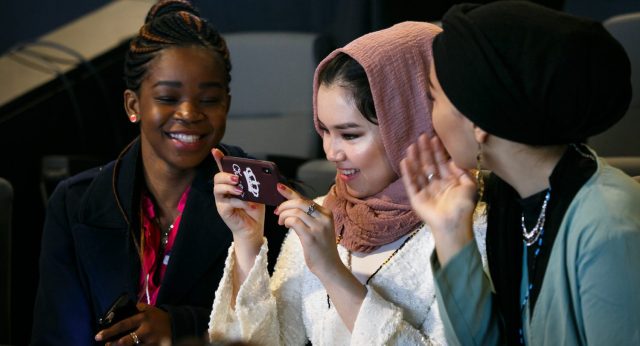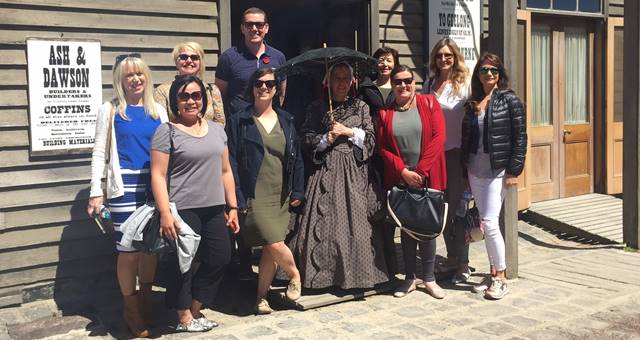
I tick all the boxes for inclusivity and diversity, so let’s get down to business
I’m a female owner of my own events company, I’m black and I have a visual impairment and I follow technology trends and its impact on society. I’m making a point, so please keep reading.
On July 24 I attended The International Conference on Human Rights and Technology and their major announcement was the launch of their Human Rights and Technology Issues Paper. It gives Australian governments a framework to protect our rights and freedoms in the digital age. They are inviting civilians like me to join a group of technologists, scientists, human rights advocates, policy makers and government to work together for social good.
I feel with my diverse credentials it makes me a pretty good contender to get a place on The Human Rights Commission panel, so make sure you read my monthly guest column in Spice News to find out if I make the grade and get accepted.
Why not even consider making the application yourself? Just email tech@humanrights.gov.au.
While the whole conference was fascinating and enlightening, this is what affects me personally and my events business the most.
While at the conference this quote really struck a chord with me from one of the presenters and it should with anyone running business events that are inclusive to all members of society.
‘It’s not about designing for accessibility it’s about designing exceptional experiences’
The conference was packed with great sessions and at a guess, I would say 90% of the audience stayed for the entire conference, I had to queue to leave.
I went to this conference to primarily hear the panel on ‘Inclusion Riders: People with disabilities and technology’.
Isn’t it ironic? Technology is a barrier and enabler
I really enjoyed the panel on disability, examples were given on how technology, often viewed as an enabler can also act as a barrier for people with disability. An example was given how autonomous lifts without brail or buttons can be a no-go area for people with disability.
However, ironically technology also acts as an enabler to assist in situations like this, it’s called Aira, an assistive community. One tap of a button instantly connects you with a sighted professional agent who delivers visual assistance anytime and anywhere. The service is delivered through its smartphone app. Using a pair of smart glasses or a phone camera, the system allows an Aira agent to see where the blind person is in real-time, and then talk them through whatever situation they’re in.
There were other great examples of how technological advancements can build bridges between society, but also act as a barrier. The message I took away is that we need to be constantly mindful of barriers to people with disability, especially in the events industry.
It was frightening to hear that the battle for inclusiveness continues to carry on even in today’s politically correct society.
Another eye-opening discussion was around how everyday people with disability use their energy and strength to overcome barriers to do normal everyday things, are then too exhausted and vulnerable to make a complaint to The Human Rights Commission.
I know that 37% of complaints to The Human Rights Commission represent the disability discrimination act, the highest volume of complaints, so there are people out there battling on behalf of the vulnerable.
Every day I deal with digital barriers from colour contrast issues to tiny fonts and in the past, I have put up with it, but because I work in an industry that is the ‘window’ to an organisations soul, i.e. events, I’m in a position to stop this from happening.
The closing words from Rosalind Croucher, President of the Australian Human Rights Commission, will stay with me as I continue to spearhead my own campaign to make business events more accessible. She suggests that applying the following principles to the advancements of technologies such as AI such will reduce a negative risk and impact on society – security, responsibility, integrity, inclusivity and most importantly humanity.
Join me at my next webinar, where co-founder of Humanitix, an Australian social enterprise ticketing platform presents how his platform donates 30% of event ticket fees to a local Australian charities, charges a lower booking fee that other platforms and is also web accessible.
Who is Luli Adeyemo?
Luli Adeyemo is director of Best Scenario Event Management a full-service event management company focused on making Australian business events accessible to people with a disability. Their team can transform an existing registration platform, event web page and other event digital assets within a matter of days before an event. They configured the registration platform for DiverseAbility, NDIS inclusion conference, to ensure it met with standards as per W3C’s WCAG2.0 accessibility guidelines.

